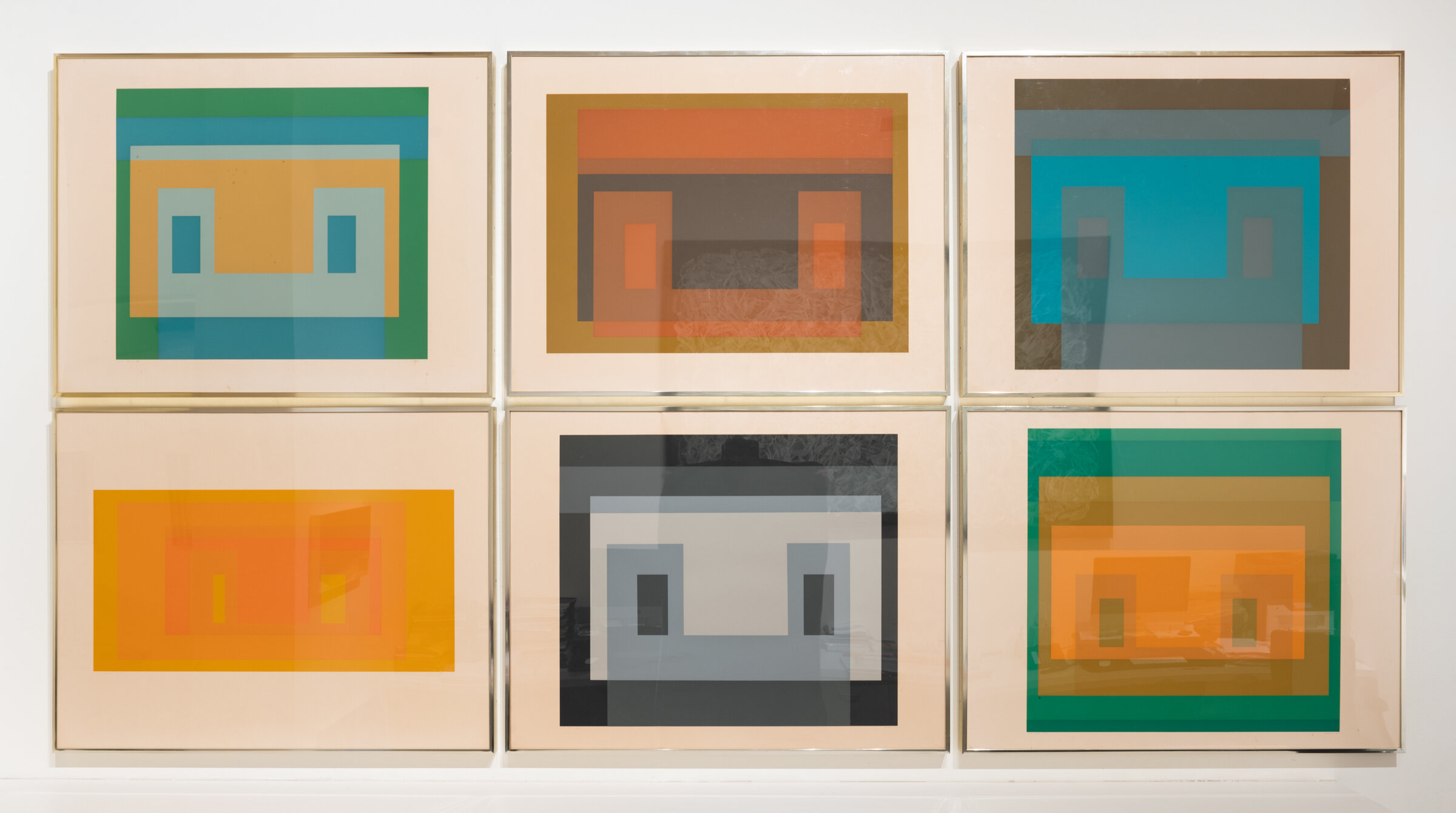JOSEF ALBERS
FEATURED WORK ALL AVAILABLE
BIO
Josef Albers was an American-German artist best known for his iconic color square paintings, also known as his Homage to the Square series. These works, along with his writings, are considered invaluable contributions to color theory. He was born on March 19, 1888 in Bottrop, Germany, joined the Bauhaus in 1922 as a stained glass maker, and later became a professor at the Dessau location of the school in 1925. Emigrating to the United States after the Nazi regime closed the Bauhaus school in 1933, Phillip Johnson, a curator at The Museum of Modern Art, found positions for both Albers and his wife Anni Albers at the experimental Black Mountain College in North Carolina. He served as the head of the painting program at the school from 1939–1949, teaching Cy Twombly and Robert Rauschenberg, among others. After his time at Black Mountain College, Albers became the head of the design program at Yale University during the 1950s. Published in 1963, his book Interaction of Color remains one of the most influential texts used in contemporary arts education. The artist died on March 25, 1976 in New Haven, CT at the age of 88. Today, Albers’s works are held in the collections of The Museum of Modern Art in New York, the Art Institute of Chicago, the National Gallery of Art in Washington, D.C., and the Tate Gallery in London, among others.


